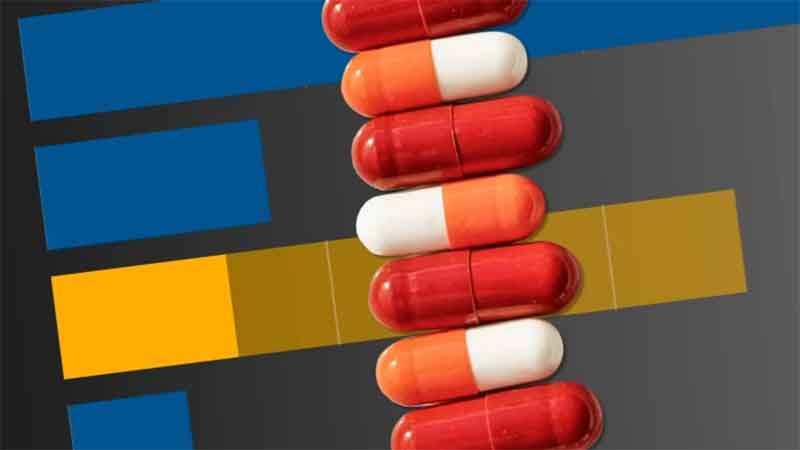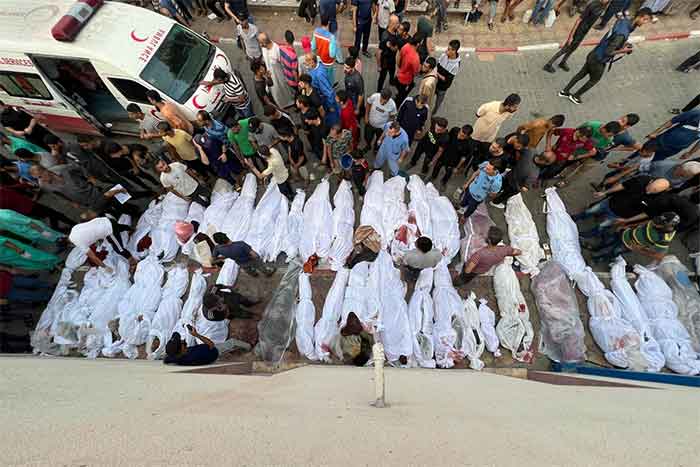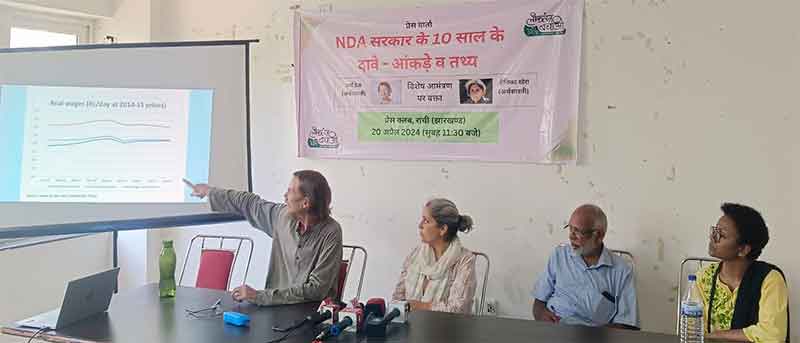Co-Written by Dr. Swati Sapna & Upasna Gaba

Organ donation is when a person allows an organ of theirs to be removed, legally, either by consent while the donor is alive or after the death of the donor with the approval of the near relative (Tamuli et al., 2019). Transplantations are the next that follow organ donations that include kidney, heart, liver, pancreas, intestines, lungs, bones, bone marrow, skin, and cornea (Tamuli et al., 2019). Globally, organ transplantation has saved thousands of lives (Ramadurg & Gupta, 2014). One may donate his/her organs like kidney and tissues like part of the liver, pancreas, lungs, and intestines during the life course. However, most of the organ donations occur only from a deceased donor (Tamuli et al., 2019).
The Transplantation of Human Organs Act was first established in India (1994) and was later amended in 2011, provides a legal and transparent system for organ donation in India (Shroff, 2009). In 2015, the health ministry of India announced a policy mechanism to facilitate the cadaver organ donation to address institutional roadblocks further. Nevertheless, almost 500,000 individuals die each year because of the lack of organ availability, primarily due to a limited number of organ donors in the country. Additionally, the World Health Organization (WHO) states that only about 0.01% Indian population donates their organs after death, whereas 70-80% of the Western country people pledge their organs (G et al., 2018). Globally, it has been identified that the attitudes of people towards organ donation are affected by factors such as awareness, education, and religion. This could be attributed to the fear and distrust among people about organ donation owing to religious attitudes, superstitions, and proper knowledge and understanding of organ donation (Jagadeesh et al., 2018).
The Crucial Role of Cultural and Religious Beliefs on Organ Donation
The religious and cultural perspective on organ donation among different communities is one of the challenges limiting the practice of organ donation. It is well-known that these beliefs play a crucial role in behaviour and decision-making regarding organ donation in religious countries, particularly in Asian regions. Religion is a significant influencing factor that governs the public’s attitude and practices towards organ donation. No religion officially bans organs from being donated or obtained or is against transplantation from living or deceased donors. The explanation for the lower score among Hindus may probably be because of their strong belief in a continuous cycle of birth and rebirth. However, some South Asian Muslim scholars (ulemas) and jurists (muftis) reject the concept and practice of organ donation from both living and deceased donors because they believe in the human body as an “Amanat” (trusteeship) from God and should therefore not be profaned after death (G et al., 2018 & Mostafazadeh-Bora et al., 2017).
Lack of information on legal and procedural details of organ donation
Another important barrier to organ donation is the lack of awareness among healthcare professionals on the legal and procedural details of organ donation. The lack of knowledge and awareness of organ donations, religious attitudes and superstitious beliefs has created fear and distrust in the minds of ordinary people and terminally ill patients. Health care practitioners should theoretically be the most trained group in the field of donation of live and cadaveric organs. In the organ procurement process, this community is the most decisive link since they are the first individuals to develop a relationship with the potential living or cadaveric donor family and should be able to activate the organ donation choice (Jagadeesh et al., 2018).
Distrust towards the health care system: The largest barrier to organ donation
Studies reveal that mistrust in the donation process is one of the main barriers stopping individuals from donating their organs after death. This mistrust could potentially stem from various causes, including perceptions that physicians are more concerned with their financial well-being than the health of patients, and negative media coverage of physicians and their practices. The same study suggested greater openness in the relationships between doctor and patient, and more time dedicated to informing the patient about the organ donation and organ transplantation process, as a strategy that reduces this mistrust. These findings illustrate the need for improved relationships between the donor-family and the donor-physician (Jagadeesh et al., 2018).
Role of family knowledge, perception, and support in organ donation
A cross-sectional study conducted in coastal South India among skilled drivers infers that the major hindrance for organ donation is the lack of family support and mistrust of the health care system, as shown by the concern that donated organs would be used for medical research and would not meet those who need it most. Families with favourable donation information and mindset criteria had a ten times greater probability of providing consent to donate their deceased next to kin’s organs (Melino, 2014).
What can be done?
To overcome the barriers to a successful organ donation request, effective communication along with education, awareness, and mass campaigns can prove to be useful. Communication includes engaging with families in a manner that offers ample information to make an informed- decision about the option of donating an organ. Families often need to be prepared for the order. It is essential to address critical subjects, such as brain deaths, how the body is treated, burial arrangements, patient desires for donation, donation costs, and providing comparative statistics on the benefits of donating an organ (Siminoff et al., 2015). Rising consent and conversion rates for transplantable organs is one promising strategy to reduce the difference between the need for organ donation and availability. The lack of awareness or expertise individuals have about organ donation is a significant obstacle frequently cited for the low consent rates. A popular approach to educate or enlighten a target audience is to communicate in mass the potential benefits of adherence to a healthy practice or to communicate the potential risks of non-compliance. In pro-social health areas, many advertising campaigns are also accompanied by grassroots or interpersonal messages of power. Registry cards are made available in the case of organ donation and brochures are disseminated that inform participants about donation. Campaigns that use interpersonal communication efforts to help media campaigns are projected to be more successful than the media alone. Hence, an effective communication strategy on organ donation can aid in eliminating negative attitudes and create a conducive atmosphere for organ donation among the driver population.
Dr. Swati Sapna is a dentist and currently a postgraduate student pursuing Masters of Public Health (Epidemiology) at Prasanna School of Public Health, Manipal Academy of Higher Education (MAHE), Manipal, India.
Ms. Upasna Gaba is a pharmacist and currently a postgraduate student pursuing Masters of Public Health (Health Policy) at Prasanna School of Public Health, Manipal Academy of Higher Education (MAHE), Manipal, India.
References:
G, M. S., Subramanian, M., Atmakuri, S. A., S, T., Bera, P., & J, N. (2018). A study on knowledge, attitude and practice regarding organ donation and transplantation among final year health science students in Bengaluru, Karnataka, India. International Journal Of Community Medicine And Public Health, 5(4), 1529–1534. https://doi.org/10.18203/2394-6040.ijcmph20181230
Jagadeesh, A. T., Puttur, A., Mondal, S., Ibrahim, S., Udupi, A., Prasanna, L. C., & Kamath, A. (2018b). Devising focused strategies to improve organ donor registrations: A cross-sectional study among professional drivers in coastal South India. PLOS ONE, 13(12), e0209686. https://doi.org/10.1371/journal.pone.0209686
Melino, A. (2014). Influence of Family Communication on Organ Donation. Honors Projects in Communication. https://digitalcommons.bryant.edu/honors_communication/12
Mostafazadeh-Bora, M., & Zarghami, A. (2017). The Crucial Role of Cultural and Religious Beliefs on Organ Transplantation. International Journal of Organ Transplantation Medicine, 8(1), 54.
Ramadurg, U. Y., & Gupta, A. (2014). Impact of an Educational Intervention on Increasing the Knowledge and Changing the Attitude and Beliefs towards Organ Donation among Medical Students. Journal of Clinical and Diagnostic Research : JCDR, 8(5), JC05–JC07. https://doi.org/10.7860/JCDR/2014/6594.4347
Shroff, S. (2009). Legal and ethical aspects of organ donation and transplantation. Indian Journal of Urology : IJU : Journal of the Urological Society of India, 25(3), 348–355. https://doi.org/10.4103/0970-1591.56203
Siminoff, L. A., Traino, H. M., & Genderson, M. W. (2015). Communicating Effectively About Organ Donation: A Randomized Trial of a Behavioral Communication Intervention to Improve Discussions About Donation. Transplantation Direct, 1(2). https://doi.org/10.1097/TXD.0000000000000513
Tamuli, R. P., Sarmah, S., & Saikia, B. (2019). Organ donation – “attitude and awareness among undergraduates and postgraduates of North-East India.” Journal of Family Medicine and Primary Care, 8(1), 130–136. https://doi.org/10.4103/jfmpc.jfmpc_206_18
SIGN UP FOR COUNTERCURRENTS DAILY NEWSLETTER















































